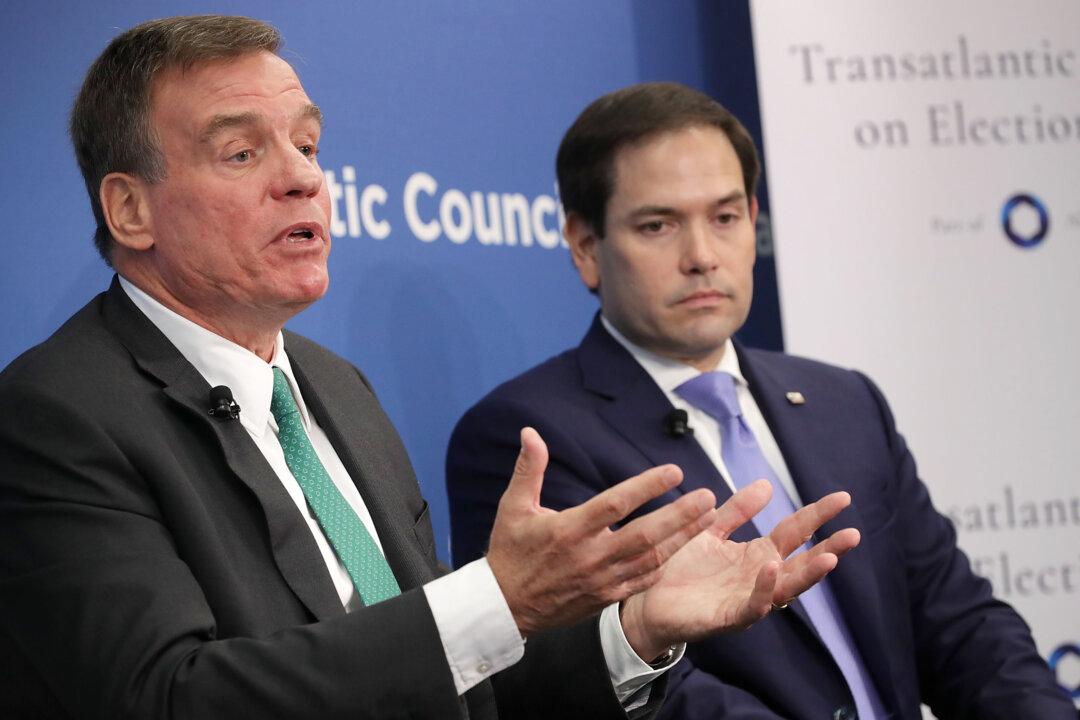Two senators are pressing the Biden administration to expand the authorities of the Treasury and Commerce Departments in order to prevent China’s communist regime from benefiting from U.S. innovation and investments.
On Feb. 21, Senate Select Committee on Intelligence Chair Mark Warner (D-Va.) and Vice Chair Marco Rubio (R-Fla.) penned an open letter to Treasury Secretary Janet Yellen to request that she expand the use of existing tools and authorities to prevent China’s military-industrial complex from benefiting from U.S. technology, talent, and investments.




